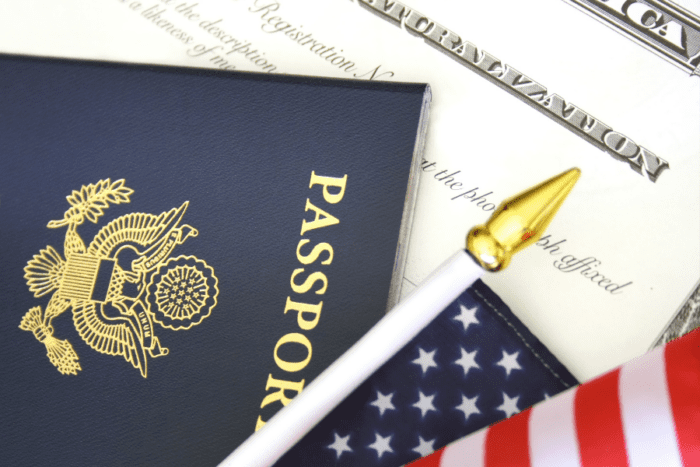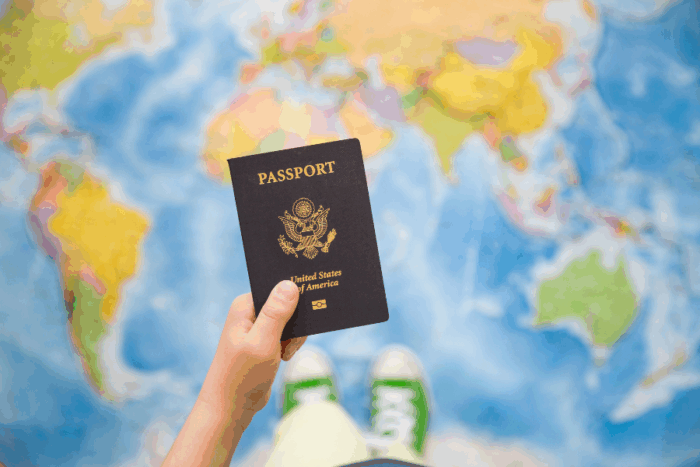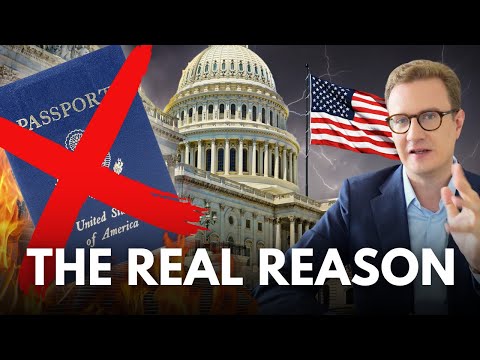How to Not Pay Taxes: 4 Legal Ways to Not Pay US Income Tax
May 5, 2025
Why do people pay so much tax in the US?
How do citizens and businesses stay in the game in the face of the government taking such a hefty slice of the pie?
With the government taking a chunk of your income, capital gains and even retirement savings, it’s no wonder many people feel they’re working more for Uncle Sam than for themselves and their families.
If you’ve ever wondered how to stop paying so much in tax returns legally, the truth is that most Americans are playing a rigged game – chasing deductions, scrambling for tax credits, and stuffing money into tax savings plans with complex restrictions and uncertain returns.
Health savings accounts, retirement accounts and flexible spending accounts – tax laws with endless rules and red tape frustrate people’s attempts to alleviate their tax burden.
We strive to understand the child tax credit or the earned income tax credit in an attempt to lower our federal income tax or achieve breaks on capital gains tax, but many of us still end up overpaying.
But there’s another path: one that can reduce your taxable income and even eliminate it.
At Nomad Capitalist, we help entrepreneurs, investors and freedom-seekers design tax-efficient lives through smart, legal offshore planning.
If you’re ready to stop playing financial defence with your money, you’ve come to the right place.
How to Not Pay Taxes in the US
Ready to lower or eliminate your US tax burden?
It comes down to strategy, not loopholes. Here are four methods that reduce or eliminate your tax bill – all are time-tested, IRS-compliant methods that can help you keep more of what you earn.
1. Live Outside the United States

One of the fastest and easiest ways to reduce your tax bill is to live outside the US for the majority of your time.
This strategy falls under the Physical Presence Test for Foreign Earned Income Exclusion (FEIE), a popular tax strategy for expats.
According to the Internal Revenue Service (IRS), if you reside outside the US for at least 330 days out of 365, you can exempt US$130,000 of taxable income from your annual taxes in 2025.
The attraction of this strategy is that you can leave the US any time you want. Plus, even if you never live there again, you can visit the US for one month a year.
One thing to be aware of is that the exemption specifically refers to time spent in a foreign country or countries. It’s not just about being out of the United States for 330 days.
What difference does that make? It comes down to the fact that international waters and air spaces do not count.
For example, if you work on a yacht – this time outside the US – you may not qualify for the FEIE. International waters do not count, so once you pass 35 days in international waters, you lose the exemption – even if you never go to the US.
In most cases, though, meeting the Physical Presence Test is pretty straightforward. Just be mindful of extended stays in the US and long international flights or cruises, as those could potentially disqualify you.
So, while the Physical Presence Test is a simple and effective strategy for reducing taxes, some planning is needed to ensure its effectiveness.
2. Live Nomadically to Benefit from Offshore Tax Incentives

Acquiring a second residency has numerous benefits and can serve various purposes, such as minimising your US tax return.
This strategy, like the first, involves living outside the US, but here’s the twist: you can become a tax resident of one country while actually living in another.
As long as you spend 330 days a year outside the US, you can live in one place and be a tax resident of another.
This allows you to leave the US and live in other countries to benefit from offshore tax incentives, as you don’t trigger tax residence in more than one country.
To make this work, you’ll need to pass the Bona Fide Residence Test. This proves to the IRS that you’ve genuinely established residency in a foreign country. It requires living there for an uninterrupted period that includes a full tax year.
This allows you to benefit from location flexibility, low taxes and an easy return to the United States.
3. Move to One of the US Territories

Another strategy to legally reduce your taxable income is to move to a US territory like Puerto Rico. However, this needs to be done carefully and correctly, as the IRS closely monitors compliance with Puerto Rico’s tax laws.
There are two different ways to save on US income taxes by moving your life and business to Puerto Rico.
First, there’s Act 60 (formerly Act 20), which targets service businesses that relocate to and export their services from the island. It offers attractive incentives like a low 4% export income tax and 0% tax on earnings and profits.
The second option, also part of Act 60 (formerly Act 22), focuses on high-net-worth investors. It features a tempting 0% tax on interest, dividends and capital gains. The main requirement is that you spend at least half the year (183 days) in Puerto Rico.
A lesser-known act is the International Financial Center Regulatory Act, or Act 273. Under this act, businesses set up and engaged in eligible activities in Puerto Rico are eligible for tax exemptions.
To qualify, an International Financial Entity (IFE) must have an authorised capital stock of no less than US$5 million (US$250,000 of that must be paid in capital when your license is issued).
The entity must also employ at least four individuals, but be careful here. Many people think they can qualify under Act 273 by hiring chefs, maids and chauffeurs and be fine. However, you should hire real employees who are engaged in a business.
Puerto Rico isn’t the only US territory that offers tax incentives to businesses and investors that allow them to dramatically cut their tax burden.
The US Virgin Islands also has a program, but again, there’s a physical presence requirement, and you must demonstrate a closer connection to the Virgin Islands than to the US.
That invariably means actually moving there, lock, stock and barrel. You can’t try to maintain your life in the US, and you must show evidence that you have assimilated into your new country, albeit a US territory.
Puerto Rico and the US Virgin Islands are attractive programs if you’re willing to actually live there. The potential benefits of these programs are best suited to those who don’t simply want to settle for the FEIE.
The FEIE only allows you to exempt up to US$130,00 in 2025 and taxes everything else you make, so the opportunity of 0-4% tax rates is attractive if your earnings justify it.
4. How to Not Pay US Tax: Renounce Your Citizenship

As a US citizen, you are deemed to be a tax resident of the US wherever you live, which means you are subject to US tax laws and must report and pay your taxes to the IRS.
However, renouncing your US citizenship eliminates all US tax obligations and IRS reporting obligations, leaving you free to explore the available low- and no-tax living options.
Some people are required to pay an exit tax on all unrealised capital gains, like those from a business (which can be hard to value), real estate, investments and other assets.
The exit tax is a hypothetical disposal of your assets on the day before your renunciation of US citizenship.
It applies to individuals with a net worth exceeding US$2 million at the date of expatriation, those who are not tax-compliant, and those who have exceeded the set income threshold for the past five years (US$206,000 for 2025).
The exit tax rate can be as high as 23.8%, but you will not be taxed again on any income or gains that have already been subject to US tax. For property, it’s deemed to be sold at its fair market value. However, the value of this deemed sale is reduced by an exclusion amount of US$890,000 in 2025.
Many people will not pay an exit tax, and the good news is that they can still receive their government benefits and, in some cases, continue using US banks after renouncing.
The best news of all, however, is that if you renounce your citizenship, you’re done with US taxes forever. That means no more jumping through IRS hoops or handing over half your income to the government each year.
How to Stop Paying US Taxes: FAQs
The only way to eliminate your US tax burden forever is by renouncing your US citizenship. When examining how to legally avoid paying taxes you should always consult a tax professional.
No. While the concept of ‘voluntary compliance’ is often mentioned, paying taxes in the US is ultimately not voluntary. The IRS enforces the tax system, and failure to pay can result in penalties and legal consequences.
There are ways to reduce your capital gains tax to zero by moving to a tax-friendly country or territory like Puerto Rico. It’s advisable to plan ahead and do that before your investments grow to maximise your tax savings and potentially avoid an exit tax if you decide to renounce your US citizenship.
The salary you need to earn before paying taxes in the US depends on various factors, including your filing status, business deductions and tax credits. However, in general, if your adjusted gross income exceeds the standard deduction for your filing status, you’ll likely owe some amount of tax. For 2025, the standard deduction on ordinary income is US$15,000 for single filers and US$30,000 for married couples filing jointly.
There are a few ways to get tax credits in the US. These include the child tax credit, the earned income tax credit and deductions for certain expenses like student loan interest, business expenses or medical expenses. You can also potentially exempt a portion of your income if you live and work abroad using the Foreign Earned Income Exclusion.
Several factors can reduce your state and local taxes payable. These include deductions, which lower your taxable income, and tax credits, which directly reduce the amount of tax you owe. Contributing to tax-advantaged accounts like a health savings account (HSA), 401(k)s or IRAs are tax deductible can also lower your taxable income.
Should You Keep Your US Citizenship?

So, with all that in mind, should you hold onto your US citizenship or renounce it?
It really depends on your situation, but most of our clients at Nomad Capitalist benefit from expanding into the global market and lowering their taxes overseas.
It’s a huge move and it’s not for everyone, but there are definitely certain cases where it makes sense for an individual to renounce their citizenship to get out from under the crushing tax burden of US income tax.
There’s a lot to think about, and mistakes can be costly. If you’re planning on renouncing, you need a plan for what happens with your business, your banking, your investments and your taxes when you decide to leave.
With some careful planning, you, too, can discover how not to pay taxes or lower them significantly.
But, it’s complicated.
Getting the right advice from the start can save you lots of time, effort and money. Rather than relying on local providers, it pays to have impartial advice from international experts with no specific allegiance to any one jurisdiction.
That’s just one of the reasons people choose Nomad Capitalist – we have direct experience across multiple jurisdictions and will help you weigh up the pros and cons of each.
So, remove all the guesswork, skip past the gatekeepers and speed up the entire process by reaching out and letting us help you go where you’re treated best.



Does Puerto Rico Pay Taxes to the US?
It’s a common question and one that often fuels confusion, debate, and a fair share of misinformation – Do residents of Puerto Rico actually pay US federal taxes? When most people think of US tax obligations, they naturally assume they apply uniformly across all US citizens. But when it comes to Puerto Rico, things are […]
Read more

Zug Canton Taxes: The Ultimate Destination for Wealth Management in Switzerland
Switzerland’s global reputation is built not just on stunning views of Alpine peaks and serene lakes but also on a foundation of exceptional quality of life, world-class infrastructure and investor-friendly tax policies. The results speak for themselves: efficient public transport seamlessly links cities and villages; the standard of living regularly ranks among the highest in […]
Read more

How Smart Investors Use Venture Capital to Build Wealth
Big companies like Google, Amazon, Facebook and Apple all started out as bold ideas backed by venture capital. Decades later, the same firms are household names, as familiar to most people as electricity, the internet, or the telephone. But hindsight is a fickle friend. The truth is, it wasn’t always so obvious they’d succeed. These […]
Read more





